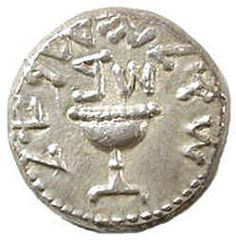 Don Quixote (Pablo Picasso)
Don Quixote (Pablo Picasso)
Around the Water Cooler
Conversation amongst coworkers tends to help a busy day pass easier and contributes to the overall morale of the workplace. However, I am not always happy with the content of that conversation. More often than not, the conversation invariably turns to the many varied and shapely qualities of the women my coworkers encounter throughout the course of their workday. Listening to these Neanderthals incessantly chattering about women reminds me of recent parolees from a maximum-security correctional facility, not having seen a female member of our species for quite some time, using every waking moment to extol the physical virtues of the womanhood they missed in prison. Every woman, young, old, big, small, black, or white receives the same careful and honest critique of my ever-so-observant coworkers. At least they don’t discriminate.
It’s not that I don’t ponder similar reflections or fail to notice a pretty girl, but carnal machinations are reserved exclusively for my own internal amusement, and I then let those images pass on and away, as most thoughts tend to do when left on their own. I am not one to blurt out impulsively what I am thinking in this regard. This is possibly due to an outdated sense of gentility or, as is more likely, my general distaste for all things pedestrian. Being there is only so much that any psyche can tolerate, and my quota of sports, sexual innuendo, and complaining about work was filled long ago, I have no stomach for any such banter. Imagine yourself confined for perhaps, eight to twelve hours a day among people with a very limited répertoire of discussable subject matter. Why do you think I need to blog? Writing proves a very effective means to clearing my mind from the mundane refuse reluctantly collected during my day.
Readjustment
Entering the non-religious world full-time required me to make some adjustments in interacting properly with the opposite sex. As you are aware, in the religious world, certain forms of contact and interaction are rigidly proscribed. Not that I was openly crass or brutish, but there remained an underlying nervousness and tension that pervaded my dialogue with women. This all or nothing (mostly nothing) mentality can create some awkward situations without tactful application. While keeping true to the spirit of the basic restrictions, things are still much more relaxed, and though handshakes and friendly hugs are well within the range of good taste and manners, I never initiate the touching. I meet plenty of women on a daily basis and, unlike many other men, I see no need to lay a hand on a shoulder or touch a woman’s back while making casual conversation. There is simply no good reason to for it. I also do not attempt to move closer than necessary during conversation. As long as my auditory faculties function properly, an approach closer than four or five feet is not required. Not that I don’t flirt if the setting is appropriate, but knowing how the ‘toucher’ in question is spoken of after he leaves the room deters me from engaging in such conduct. I would rather be accused of aloofness, erring on the side of caution, and not earn a negative reputation that I don’t want and will never need. (Besides, my expertise in the art of flirtation is so profound that physical contact is seldom required.)
Another part of this re-socialization consisted in learning how to befriend women without thinking of them in sexual context. This problem could in part, be attributed to an over-zealous religious training, but it would be unfair to place responsibility upon that factor alone. Though aspects of religious teaching indirectly foster the objectification of women, even without that, I was still a very sexually driven and sensually aware young man, and in seeking to control my own natural tendencies, I faced the same challenges as many other young men. This manifested itself in an immaturity; the inability to see women as anything other than sexual objects or only viewing them from my own projected perspective. In practical terms, if you are staring at her breasts, or mentally disrobing her, you cannot hear anything she says.
I have a personal story to relate how improper socialization effects dating, friendships, and relationships. The difference between dating success and interactive disaster hinges upon the proper application of listening and a little bit of inner restraint.
Let the Games Begin!
One Christmas Eve, a few of my fellow laborers decided to celebrate the season by patronizing a local tavern. Since it was a Friday night, the place was pretty packed and there was no shortage of pretty women. One of my coworkers, we’ll call him Leon, believes himself the ultimate lady’s man, and challenged me to a duel of sorts. He likes to initiate rivalries whenever possible as his way of showing himself the alpha male. This fellow is generally a vulgar and foul-mouthed jerk. I refer to him as ‘Mr. Hallmark.’ He does however manage to land his share of females, so I knew this might actually be a fair contest. Leon picked out a woman at a far off table; a twenty-something blonde with an intellectual appeal about her who, for at least the time we observed, had been sitting alone nursing a beer while staring off into space in a bored non-chalant sort of way. The object of this competition was, within a span of ten minutes or less, to entice the enchanting creature into giving up a telephone number and/or e-mail address. What made the prospect even more rewarding was that half of our workforce would be watching from a safe distance. There is nothing more satisfying than scoring ‘pimp-daddy’ points in front of a live audience. I know it was stupid and I didn’t really want to play, but the idea of showing the ‘alpha’ who was really the top dog was too strong to resist.
Leon swaggered over to her table, asked if he could sit down, and she, accepting, smiled at him. One thing I already knew about my opponent was his persistent habit of speaking exclusively about himself, and unable to hear their conversation, I still knew exactly whom he was talking about and what he was saying. For the next ten minutes, Leon talked, slowly moving his seat and leaning his body toward his intended target. I suspect his strategy was to distract the woman with chatter while he nudged himself closer and closer with each passing syllable. Whatever he was thinking it didn’t appear to have the desired effects. As the allotted time concluded, an agreed-upon signal was given, and true to his word, he bid her goodnight and crawled back his compadres empty-handed and somewhat dejected. The only information he gleaned from ten minutes of conversation was her name. I was surprised he managed to hear that much above the clamor of his own self-aggrandizement. In either case, no one expected me to fare much better.
There is always one factor to consider when approaching a woman in a bar. If a woman is sitting alone, it means that at least twenty other men have already tried talking with her. So I ask myself, what am I going to do different that the other men haven’t done? The answer? Listen! However, listening would still require the ‘ice to be broken’ as it were, and other than performing a magic trick or some feat of supernatural prowess, even the Great and All-Powerful Shlomo is constrained by the usual insipid and often inane opening remarks.
“Hi. May I sit down?”
“Why? Are you tired?” (Her obvious cynicism foretold my eventual success.)
“Tired of working all day and drinking alone. You?”
“Yeah. I get that way, too. The cycle can be depressing sometimes.”
“That’s why we have alcohol and drugs.”
She lifted her beer and toasted “To Prozac!”
“To Prozac!” (We both laughed.)
“Oh. You’re on it, too?”
“Not yet, but it seems like a good idea sometimes.”
(Note: When dating a woman and visiting her home for the first time, excuse yourself to bathroom right away and check her vanity to see what medications she is taking.)
She laughed again. It was then I knew the ice had officially been broken. Notice that she was comfortable enough to reveal, and within fifteen seconds of conversation, that she was taking Prozac for her depression and mood swings. Always a good bit of information to have.
“Oh, sorry. My name is Shlomo. You should probably know the name of the guy to whom you’re releasing confidential medical information.”
“Shlomo? What language is that?”
“Hebrew, and yes, I’m Jewish.”
“Jennie. My name is Jennie. And I’m a recovering Catholic. Jewish guys are cool.”
“Thanks. Catholic girls have a reputation, too. (She sneered at me.) So what else do you do to relax besides beer and Prozac?”
“I dance. I study dance at State.”
“Wow. Tell me more.”
From that moment, my mouth shut and hers opened. She proceeded to spend the next few minutes telling me about the last production she performed in, and willingly added details of her family background, career goals, and favorite literature. All I had to do was shut the hell up and listen. Already having most of the information needed, with ample time to spare, I turned to excuse myself to the rest room. Jennie then grabbed my arm and handed me a business card with her telephone number and e-mail address. I thanked her and marched victoriously onward, information in hand, anxious to experience the long anticipated, raucous celebratory honor that awaited me on the other side of the barroom. After a couple of ‘high-fives’, we men then settled in for a few more rounds of draft beer and whiskey.
Jennie had actually not intended to be drinking solo that evening. Her very tardy friends entered just a few minutes behind my departure and, drawing fresh barstools up to her table, they delved into animated discussion, the topic of which I could have no possible clue. It certainly seemed lively enough, and for a moment, I wondered if our little contest exposed itself somehow, and felt no small sense of dread in that realization. This was not the case, however, and much to my relief. As Jennie and her recently arrived entourage relocated themselves closer to the bar, she waved me over and asked me to join them, and I accepted without hesitation. The remainder of the evening passed in high spirits as we conversed about wines, books, movies, travel, and art. All-in-all, an excellent night out on the town.
Don't Make Me Repeat It
Listening is definitely an art form, but is not limited to words. The nuances of body language, word usage, and context also play an important role. Sure, you can pay for dinner and pay for drinks, but failing to pay attention, focusing only on your own needs and perspectives, one will never know the woman at all. In addition, by removing or delaying sexual innuendo from dialogue and keeping a safe ‘distance’ gives a person the opportunity to learn about the person they are meeting. The problems and conflicts that may occur later on in relationships can be wholly avoided by friendly, unpresumptuous chitchat held within the first few minutes of meeting. The man who won’t listen only finds out much later, and perhaps too late, that his immediate and impulsive choice is one that he (and she) will come to regret. Whether we are speaking of the barroom or the boardroom, discretion and attention can bring welcome payoffs and decrease future misunderstandings.
In case you might be wondering, I never used the phone number.
“Do not forget, Sancho,” said Don Quixote, “that there are two kinds of beauty, one being of the soul and other of the body. That of the soul is revealed through intelligence, modesty, right conduct, generosity, and good breeding, all of which qualities may exist in an ugly man. When one’s gaze is fixed upon beauty of this sort and not that of the body, love is usually born suddenly and violently.” (Miguel de Cervantes, from Don Quixote)









